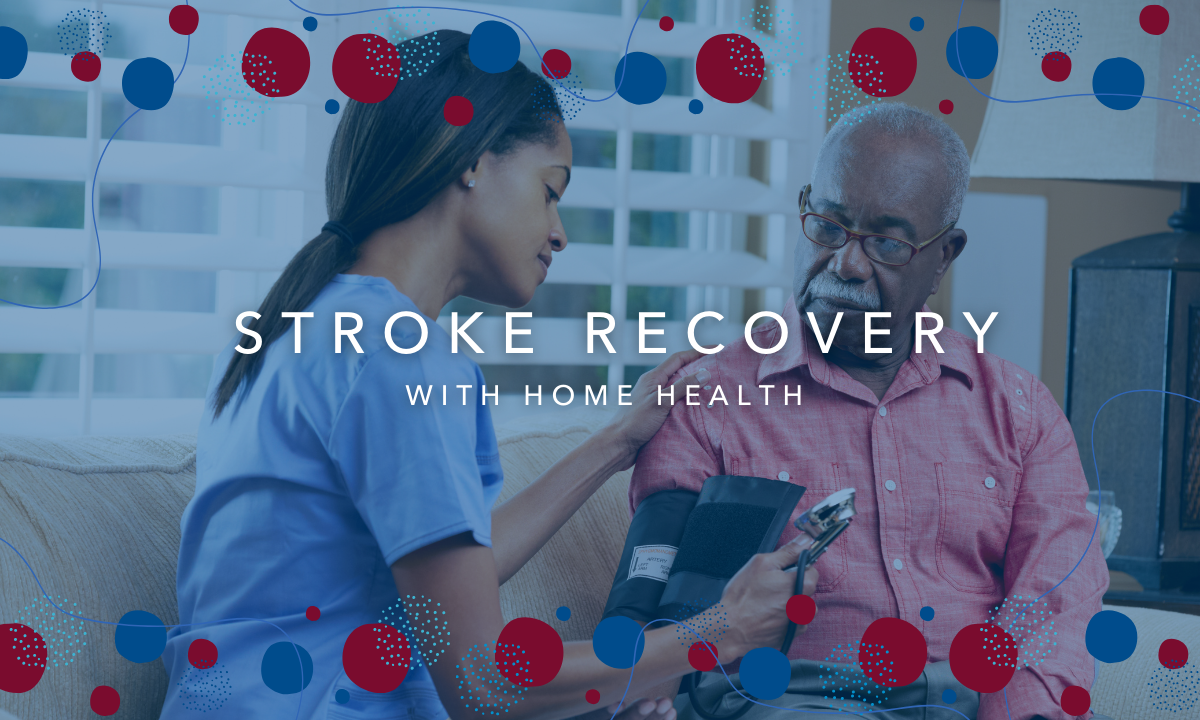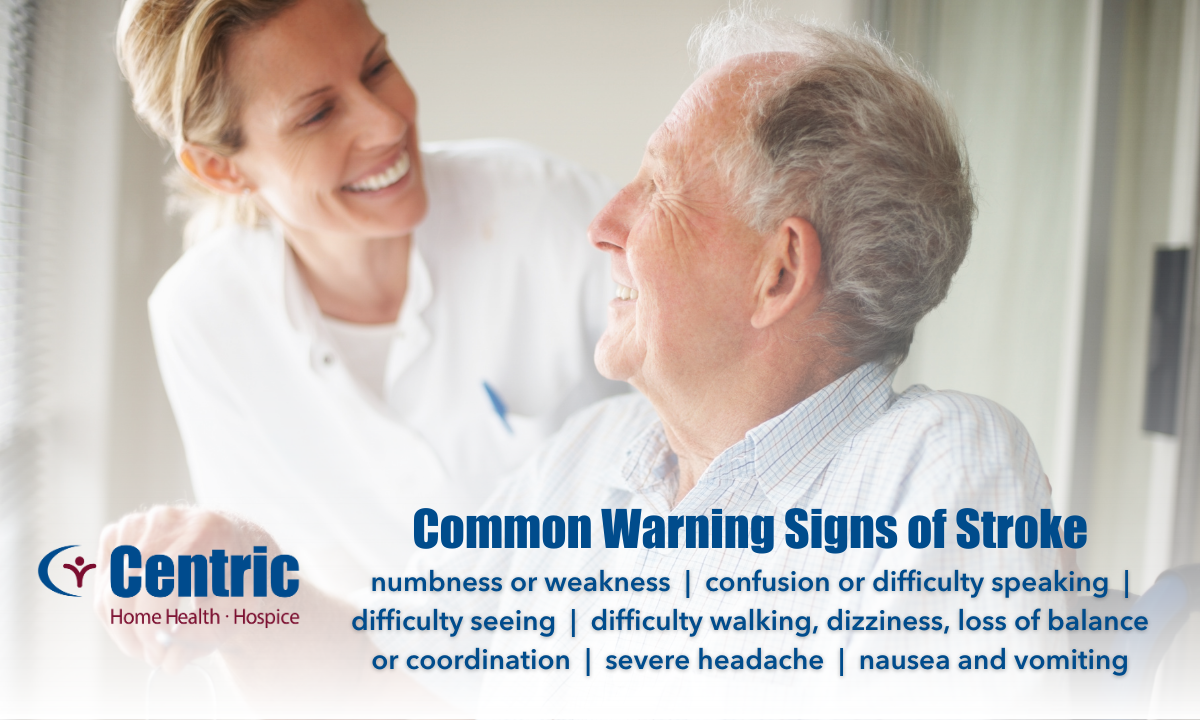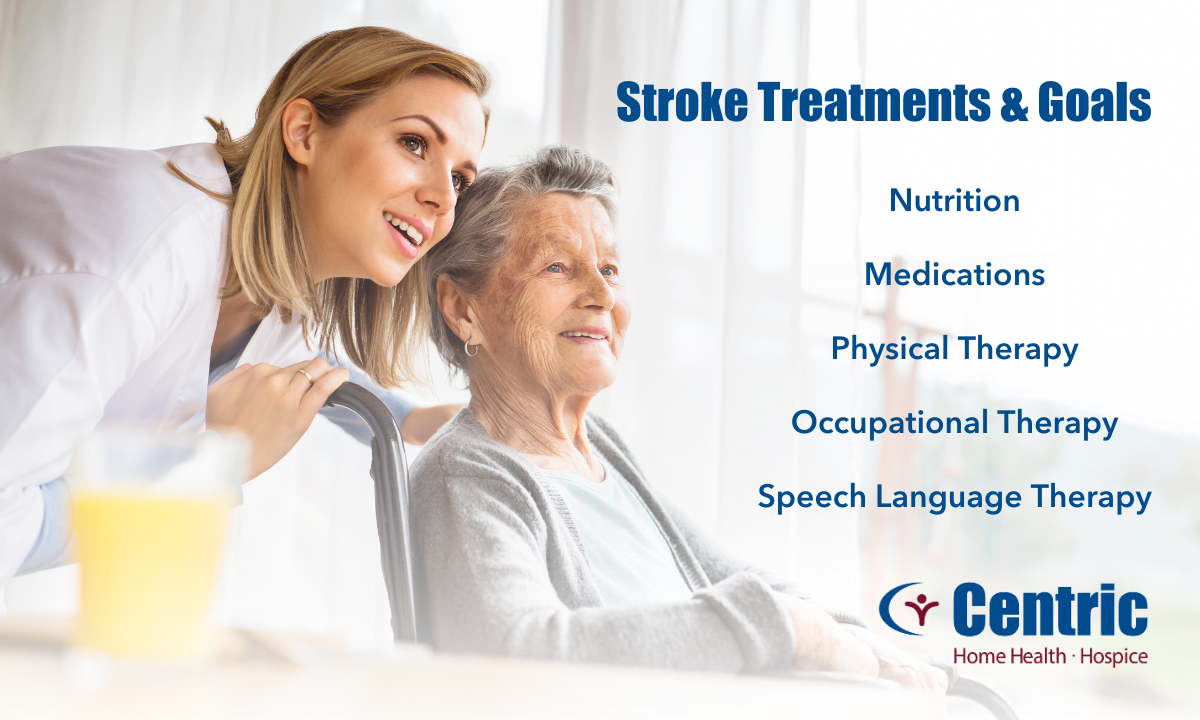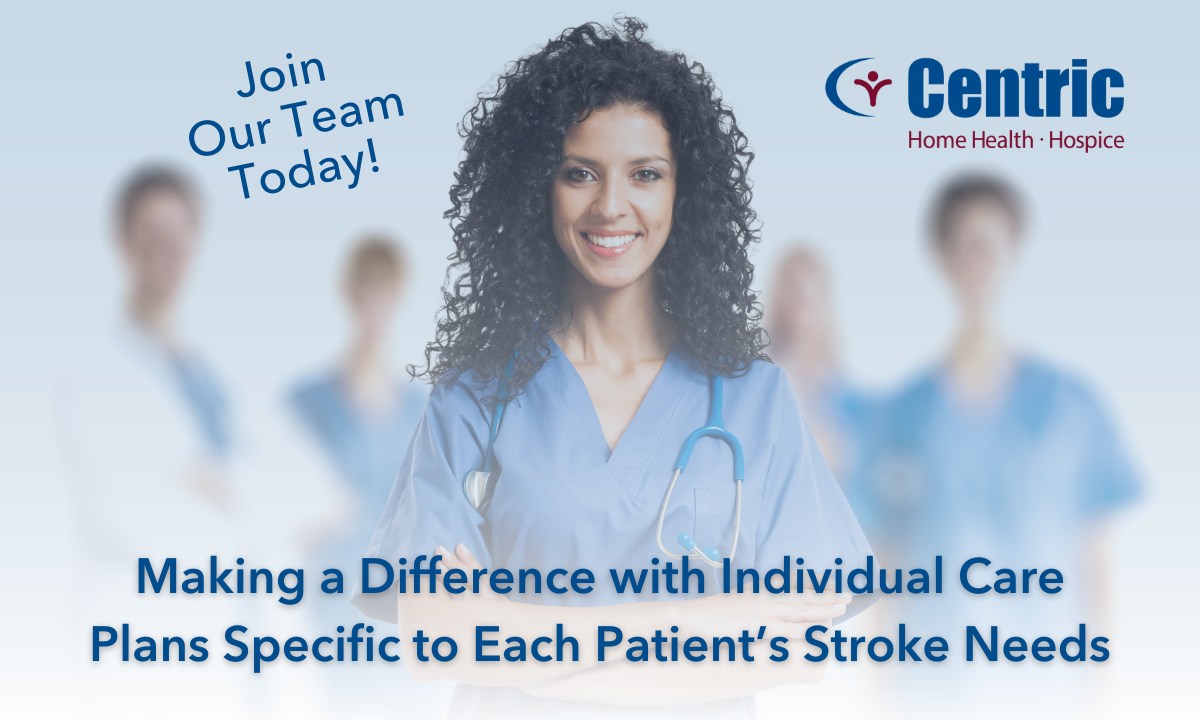Stroke Recovery with Home Health
Reclaiming Your Life After Stroke
Experiencing a stroke can be a frightening experience for the individual as well as their family because every minute counts! By having a better understanding of what exactly a stroke is, the warning signs and symptoms, and the different types of strokes, the effects may be drastically reduced. Whatever your education or experience is with strokes, you also need to be aware of and understand your treatment options. Centric Home Health is one of the main supporting treatments that will significantly get you or your loved one back to independent living.

What Exactly is a Stroke (Medical Term)?
A stroke is a medical term used to describe the sudden death of brain cells due to insufficient blood flow and oxygen supply. A stroke is a medical emergency and can have long-term physical, cognitive, emotional, and psychological effects, especially if not treated in a timely manner.
But what does that mean? In layman’s terms, a stroke is an attack on the brain through the blood vessels. Blood flow is restricted or diverted from the brain which reduces the amount of oxygen the brain cells receive, and those starving brain cells begin to die. There are two main ways a stroke can occur including being caused by blocked arteries (ischemic stroke) or leaking or bursting blood vessels (hemorrhagic stroke). There are also transient Ischemic Attacks (TIA) which are temporarily blocked arteries and can serve as warning signs and point to other blocked arteries. Other health conditions such as high blood pressure, smoking, or diabetes can be risk factors for stroke.
Stroke Warning Signs
It is extremely important to know the warning signs of a stroke so that you can seek immediate medical attention if necessary. The signs of a stroke can be sudden and dramatic, or even sometimes subtle and odd.
Common warning signs of a stroke include:
- numbness or weakness of the face, arm, or leg (especially on one side of the body)
- confusion or difficulty speaking and repeating simple sentences
- difficulty seeing in one or both eyes
- difficulty walking, dizziness, loss of balance or coordination
- severe headache with no known cause
- nausea and vomiting
If you have any of these warning signs, seek medical help immediately by calling 9-1-1 for ambulance assistance. Calling an ambulance is important so the medically trained EMTs can take necessary measures to provide life-saving treatment if needed.

Stroke Treatment
The treatment for stroke depends on the type and severity of stroke you have had. For ischemic strokes, which occur when a blood clot blocks the flow of oxygen-rich blood to an area of the brain, treatment may involve using medications to break up or dissolve the clot. Again, we stress the importance of timeliness once you discover a stroke is occurring because some medications may not be as effective if too much time passes.
For hemorrhagic strokes, which happen when a weakened blood vessel ruptures and starts bleeding into the brain, treatment usually involves immediate surgery to repair or remove the damaged vessel. Other treatments may also be medications, physical and occupational therapy, speech-language therapy, and lifestyle modifications.
Stroke Recovery
Recovery from a stroke can take months or even years, but with the right treatments and lifestyle changes, many people make significant progress. Depending on how severe the stroke was, you or your loved one may need to relearn skills such as walking, talking, and eating. You may also find yourself dealing with emotional changes as well, which can be addressed by counseling and therapy tailored specifically for stroke survivors. Working with a team of health professionals, you can work on retraining your brain to recover from neurological damage, as well as relearning everyday tasks.
Treatments and Goals
Medications – may help reduce swelling in your brain or keep your blood from getting clots too easily.
Physical Therapy – may help you regain strength and movement in your arms and legs.
Occupational Therapy – aids with activities of daily living.
Speech-language Therapy – assists with regaining speech or swallowing.
Nutritionists – can help create meal plans to boost energy levels and facilitate healing.

Ultimately, each patient’s treatment plan is unique to them.
Additional Stroke Recovery Options
As part of stroke recovery, many people find it helpful to join a stroke support group or network for emotional support and understanding. Taking care of yourself or your loved one through healthy eating, regular exercise, and managing stress levels will also help in the recovery process. With dedication and patience, you or your loved one can make incredible strides towards better physical and mental health after a stroke.
Home Health Assists in Stroke Recovery
Home health services can be invaluable during this period as they provide specialized care tailored to your needs especially after a life altering event such as a stroke. Home health focuses on regaining your independence, educating the patient and the family about what to expect and how to overcome possible obstacles they may face. Medical care teams in the home health field can help you regain mobility, strength, and coordination, as well as adjust to lifestyle changes caused by stroke. They can also provide emotional support, education for you and your loved ones about stroke care and recovery, as well as assistance with activities of daily living.
Home health care services provide support through this difficult journey so that you can recover safely. With home health care services like Centric Home Health and Hospice, you will have access to medical professionals who understand the challenges of stroke recovery and are dedicated to helping you reach your independence again!

Why Choose Centric Home Health
At Centric Home Health, we are here to help you or your loved one recover from a stroke. We understand that recovering from a stroke can be overwhelming and want to be there with you every step of the way. Our team of experienced professionals are experienced in stroke treatment and recovery, providing individualized care plans tailored to the patient's specific needs, allowing us to center the care they need around them. We provide detailed stroke recovery services such as physical and occupational therapy, speech-language therapy, cognitive and emotional support, nutritional guidance, pain management, and other specialized services to help during this difficult period.
Contact us today at 1.855.942.3687 for more information about how we can help you or your loved one on their stroke recovery journey with Centric Home Health.
Share This On Your Favorite App